Zero parking, not a single spot available at any time. Even when you happen to get a parking spot, you still have to wait another 50 minutes for your appointment to start
About Walter Reed Army Medical Center
Walter Reed Medical Center is probably one of the most well known VA hospitals in the country and is located in Bethesda, Maryland just outside of Washington, D.C. Along with being a part of the VA hospital network, it’s most notably the hospital of record for the President of the United States. Along with treating routine medical needs for active military members and veterans, this hospital also provides substance abuse treatment on an outpatient basis.
Onsite Substance Abuse Support
Walter Reed provides outpatient and intensive outpatient care with the option for referrals to inpatient facilities and residential treatment programs to manage more severe addiction. They’ll do an assessment at the start to determine what type of treatment is best for you, whether it’s here or at another VA treatment center.
Outpatient Treatment for SUD
The VA provides comprehensive outpatient support for treating substance use disorders (SUD). This includes dual diagnosis treatment for contributing conditions such as PTSD and depression. Specific to substance abuse, you can access medication assisted treatment (MAT) or even nicotine treatment if you’re trying to stop smoking. If you need something more intensive like inpatient treatment at this stage in your recovery, they can connect you with inpatient treatment too.
Therapy For Better Outcomes
The VA offers a wide range of therapeutic support programs to help you overcome your addiction. This can include self-help groups, individual and family counseling and even specialized counseling options catered towards specific veteran concerns such as returning combat veterans, veterans who are experiencing homelessness, and women veterans. Additionally, some people may be able to take advantage of residential live in care.
Your treatment here is typically covered by VA benefits if you qualify as a military member or veteran.
Facility Overview
Latest Reviews
Rehab Score
Gallery
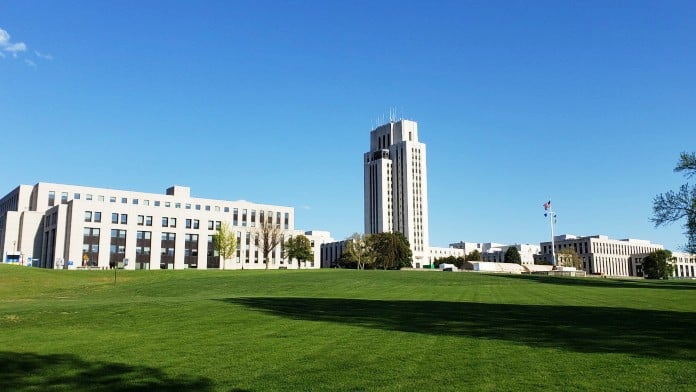
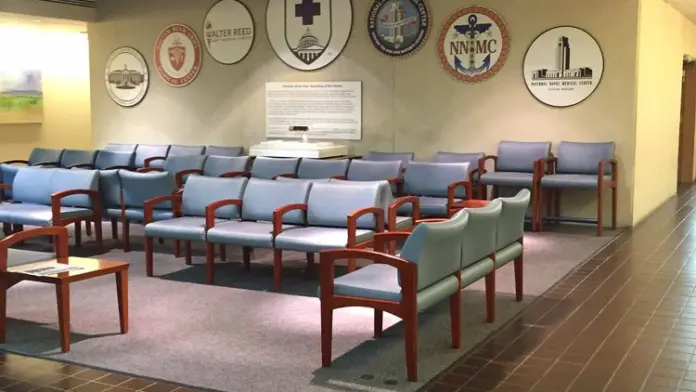
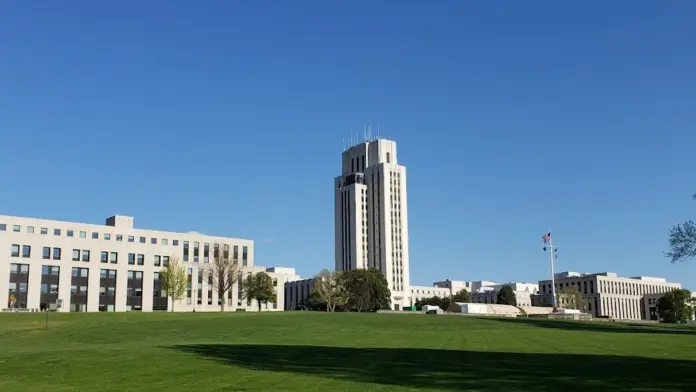
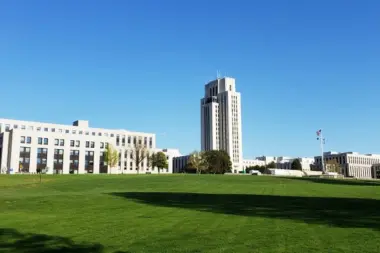
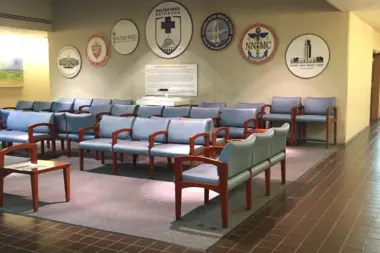
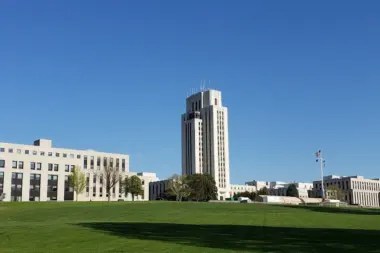
Other Forms of Payment
Private insurance refers to any kind of healthcare coverage that isn't from the state or federal government. This includes individual and family plans offered by an employer or purchased from the Insurance Marketplace. Every plan will have different requirements and out of pocket costs so be sure to get the full details before you start treatment.
Self-pay involves paying for treatment out of your own pocket. You can use savings or credit, get a personal loan, or receive help from family and friends to fund your treatment. If you don't have insurance or your insurance plan doesn't cover a specific program, self-pay can help ensure you still get the care you need.
Military members, veterans, and eligible dependents have access to specific insurance programs that help them get the care they need. TRICARE and VA insurance can help you access low cost or no cost addiction and mental health treatment. Programs that accept military insurance often have targeted treatment focused on the unique challenges military members, veterans, and their families face.
Addiction Treatments
Levels of Care
The Adult Outpatient Behavioral Health Clinic is a multidisciplinary clinic providing a full range of quality outpatient behavioral health services to adults seeking change, healing, and care within a collaborative and safe setting. They provide comprehensive treatment including evaluation, medication management, and various modalities of therapy (individual, couples, group).
Residential treatment programs are those that offer housing and meals in addition to substance abuse treatment. Rehab facilities that offer residential treatment allow patients to focus solely on recovery, in an environment totally separate from their lives. Some rehab centers specialize in short-term residential treatment (a few days to a week or two), while others solely provide treatment on a long-term basis (several weeks to months). Some offer both, and tailor treatment to the patient's individual requirements.
Quitting drugs and alcohol on your own can cause uncomfortable and even dangerous side effects caused by the withdrawal process. In medically assisted detox, a team of licensed medical professionals will monitor your health, provide medication for potential withdrawal symptoms, and work to keep you safe and comfortable. Most people transition to an inpatient program or a maintenance program that uses medication assisted treatment (MAT).
Treatments
The goal of treatment for alcoholism is abstinence. Those with poor social support, poor motivation, or psychiatric disorders tend to relapse within a few years of treatment. For these people, success is measured by longer periods of abstinence, reduced use of alcohol, better health, and improved social functioning. Recovery and Maintenance are usually based on 12 step programs and AA meetings.
Once a person has become addicted to a substance, drug rehab in Maryland is often necessary to overcome that addiction. These programs provide the tools individuals need to manage the physical, mental, and emotional issues involved and begin a successful recovery journey.
A combined mental health and substance abuse rehab has the staff and resources available to handle individuals with both mental health and substance abuse issues. It can be challenging to determine where a specific symptom stems from (a mental health issue or an issue related to substance abuse), so mental health and substance abuse professionals are helpful in detangling symptoms and keeping treatment on track.
Opioid rehabs specialize in supporting those recovering from opioid addiction. They treat those suffering from addiction to illegal opioids like heroin, as well as prescription drugs like oxycodone. These centers typically combine both physical as well as mental and emotional support to help stop addiction. Physical support often includes medical detox and subsequent medical support (including medication), and mental support includes in-depth therapy to address the underlying causes of addiction.
Programs
Adult rehab programs include therapies tailored to each client's specific needs, goals, and recovery progress. They are tailored to the specific challenges adult clients may face, including family and work pressures and commitments. From inpatient and residential treatment to various levels of outpatient services, there are many options available. Some facilities also help adults work through co-occurring conditions, like anxiety, that can accompany addiction.
Recovery is most successful when clients feel accepted and validated by their peers and treatment providers. Facilities that offer LGBTQ-inclusive programming are committed to creating a safe space where everyone can grow and recover without fear of judgment or discrimination. They will have dedicated policies in place to create a safe and supportive environment that fosters free expression.
Serving in the military is both mentally and physically challenging, and can result in trauma that persists even after combat ends. Military programs are tailored to the specific and often complex needs of active duty personnel, veterans, and military families. Clients often access these programs through the U.S. Department of Veterans Affairs (VA).
Clinical Services
Cognitive Behavioral Therapy (CBT) is a therapy modality that focuses on the relationship between one's thoughts, feelings, and behaviors. It is used to establish and allow for healthy responses to thoughts and feelings (instead of unhealthy responses, like using drugs or alcohol). CBT has been proven effective for recovering addicts of all kinds, and is used to strengthen a patient's own self-awareness and ability to self-regulate. CBT allows individuals to monitor their own emotional state, become more adept at communicating with others, and manage stress without needing to engage in substance abuse.
Group therapy is a special kind of therapy in which a small number of people meet with a professional trained therapist to help themselves and one another. Group therapy assists people in developing new ways of relating to others, to learn about themselves and improve their interpersonal relationships. It can address feelings of isolation, depression or anxiety. Some groups focus on sharing of feelings while others focus on skills-development.
In individual therapy, a patient meets one-on-one with a trained psychologist or counselor. The Clinic offers individual treatment in a safe and confidential environment. Individual therapy can help you identify aspects of your life you would like to change, better understand yourself and others, explore feelings, or work through challenging memories or difficulties.
Trauma therapy addresses traumatic incidents from a client's past that are likely affecting their present-day experience. Trauma is often one of the primary triggers and potential causes of addiction, and can stem from child sexual abuse, domestic violence, having a parent with a mental illness, losing one or both parents at a young age, teenage or adult sexual assault, or any number of other factors. The purpose of trauma therapy is to allow a patient to process trauma and move through and past it, with the help of trained and compassionate mental health professionals.
Amenities
-
Residential Setting
-
Private Rooms
Staff & Accreditations
Staff

Captain Melissa C. Austin
Director
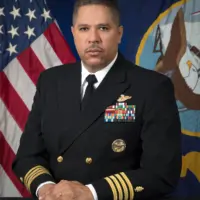
Captain Juan N. Rosario
Chief of Staff

Sergeant Major Dennis R. Waycaster
Senior Enlisted Leader Command
Accreditations

The Joint Commission, formerly known as JCAHO, is a nonprofit organization that accredits rehab organizations and programs. Founded in 1951, the Joint Commision's mission is to improve the quality of patient care and demonstrating the quality of patient care.
Joint Commission Accreditation: Yes
Contact Information
8901 Wisconsin Avenue
Bethesda, MD 20889